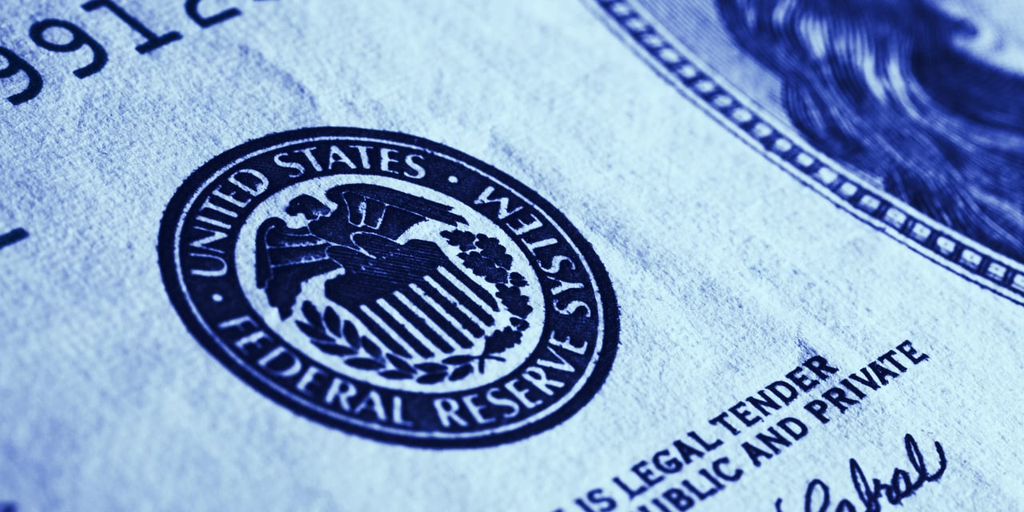Law and Order
Coinbase Urges Australia to Vote for Crypto Progress in May
Published
2 weeks agoon
By
admin

Australia’s federal election next month could decide the future of crypto in the country, according to a call to action from Coinbase urging voters to back progress on digital asset reform.
John O’Loghlen, Coinbase’s Managing Director for APAC, warned that despite soaring interest in digital assets, “Australia’s policy environment for crypto remains frustratingly vague and underdeveloped,” in a blog post on Monday.
“It’s now 2025, and we still don’t have clear rules to support innovation, protect consumers, and attract long-term investment,” O’Loghlen said.
Coinbase outlined five urgent steps for the next government, including launching a crypto taskforce in its first 100 days, tackling the country’s worsening debanking problem, enabling stablecoin use, and providing tax clarity and startup support for Web3 builders.
While up to 31% of Australians have held crypto, placing the country among global leaders in adoption, regulatory paralysis is driving talent and capital abroad, the post said.
“Talented Web3 builders are heading offshore,” O’Loghlen wrote. “Every day, we’re seeing local capital and talent flow to friendlier jurisdictions like Singapore and Dubai.”
O’Loghlen cautioned that Australia risks losing its edge in Web3 innovation, noting it’s “unlikely the world’s next Coinbase or Circle will be founded in Australia,” not due to a lack of talent, but because the country “lacks the ambition and urgency to support them.”
The platform’s plea comes as Prime Minister Anthony Albanese’s government attempts to roll out a regulatory framework.
Australia’s plan
In March, Treasury outlined plans requiring major exchanges to obtain Australian Financial Services Licences and issued guidance on stablecoin oversight and custody services.
The agency also pledged to tackle debanking by working with banks to promote transparency and fairness, a practice Coinbase slammed as “treating everyday Australians like criminals.”
Meanwhile, new data from the Australia-based educational platform Digital Wealth Group offered insight into Australian crypto behavior.
A poll of 696 members found only 9.9% held more than $195,000 (A$300,000) in crypto, despite 55% reporting household incomes over $97,500 (A$150,000).
“This suggests that even wealthy Australians aren’t going all in on crypto—yet—they’re still just dabbling,” the group said. Only 3% reported portfolios above $650,000 (A$1 million).
The crypto exchange’s statement comes just weeks after it was confirmed Australians will vote on May 3 in a tightly contested election.
With Labor defending a slim majority, polls suggest either party could be forced to work with independents or minor parties to form government.
While cost-of-living, housing, and healthcare dominate the campaign, Coinbase is calling for crypto to take a key place in the debate.
The exchange says the next government must move “beyond consultation and into legislation” as Australia “can’t risk falling further behind” in regards to crypto innovation.
Edited by Sebastian Sinclair
Daily Debrief Newsletter
Start every day with the top news stories right now, plus original features, a podcast, videos and more.
Source link
You may like


Crypto Investors Sue Nike, Accuse Apparel Giant of Rug Pull After Abrupt Closure of Metaverse Business: Report


Top cryptocurrencies to watch: Pi Network, XRP, Sui


This Week in Crypto Games: Ubisoft’s ‘Might & Magic’, ‘Peaky Blinders’ in Development


Why Arbitrum-Nvidia Partnership Collapsed – And What It Means for Web3


Tariff Carnage Starting to Fulfill BTC’s ‘Store of Value’ Promise


The cost of innovation — Regulations are Web3’s greatest asset
Law and Order
Why Alabama’s Securities Commissioner Dropped Its Case Against Coinbase
Published
1 day agoon
April 26, 2025By
admin

Alabama’s Securities Commission this week dropped its enforcement action against crypto exchange Coinbase for its staking program—an apparent sign that regulators are letting up on digital assets companies as the federal government continues its pro-crypto pivot under President Trump.
But Commissioner Amanda Senn told Decrypt the regulator is still as committed as ever to promoting “market stability and integrity”—and it won’t hesitate to bring enforcement actions against Coinbase or any other firm, if necessary.
“We merely recognized that we may be able to accomplish what we want without the time and expense of litigation,” Senn said. “Had we been further down the road [in our action against Coinbase], we may have proceeded.”
Crypto out of the crosshairs?
Alabama is one of 10 states that banded together in June 2023 to bring a spate of enforcement actions against Coinbase, alleging the crypto exchange had violated securities laws by failing to properly register its staking services.
But now, as policymakers and federal regulators ratchet back their oversight of the digital asset industry under pro-crypto President Donald Trump, that unity has largely crumbled.
Five of the states—Illinois, Kentucky, South Carolina, Vermont, and Alabama—have dropped their enforcement actions against Coinbase over the past few weeks, while regulators in five other states are resisting pressure from Coinbase to do the same, according to a report from political news outlet Punchbowl.
Five holdouts are still electing to waste taxpayer resources on lawsuits, and four of those have banned staking with @coinbase, depriving consumers of the right to earn on their platform of choice. 2/3
— paulgrewal.eth (@iampaulgrewal) April 23, 2025
“We’re halfway there: Alabama just dropped its enforcement action against Coinbase,” the firm’s lead legal counsel Paul Grewal said Wednesday in a social media post, adding that the states’ actions were “misguided” and claiming that the “holdouts are still electing to waste taxpayer resources.”
However, Senn told Decrypt that she and her colleagues “don’t believe litigation is a waste of time”—and their call to drop an enforcement action against the firm “should not be taken by anyone that we will not litigate if an appropriate regulatory scheme [for the cryptocurrency industry] is not adopted” in the U.S.
Alabama rescinded its enforcement action against Coinbase to “allow time” for policymakers to create a legislative framework for the cryptocurrency industry—a move that could save investor shareholder and taxpayer dollars, Senn explained.
“By all accounts, a regulatory framework appears imminent, so it made sense for us to table our litigation posture and allow time for our policymakers to continue their good work,” Senn said.
Experts expect a market structure bill to pass in the latter half of this year, despite recent rumblings of disagreements between crypto-industry power players over what that legislation should entail.
Senn noted that lawmakers and federal regulators are holding multiple hearings and bimonthly roundtable discussions on crypto-focused legislative efforts and regulations.
“They’re pretty aggressive in their agenda,” she said, speaking of the pace at which lawmakers have moved to advance crypto-focused policy efforts.
Rethinking enforcement
However, mounting momentum for legislative reform on Capitol Hill is just one reason for which the Alabama Securities Commission dropped its action against Coinbase.
When the Commission decided to drop its enforcement action, it was still in the early stages of that process and was engaging in talks with Coinbase’s team, according to Senn.
“There were examinations of procedures but we were not in active discovery,” she explained.
That’s because—unlike some states that issued cease and desist orders to Coinbase—Alabama issued a show-cause order, a kind of enforcement action that acts more as a “vehicle for discussions” than a directive for a firm to completely halt its operations in a particular jurisdiction.
“Some states have already expended significant resources toward litigation and were much further down the road,” Senn explained. “Each jurisdiction should make its own decision about how it should proceed.”
Asked why Alabama opted to issue a show-cause instead of immediately ordering Coinbase to stop its activities in its jurisdiction, Senn said: “I consider [Coinbase] part of the financial sector—it’s a dollar in, a dollar out… but I appreciate that this is new technology, and a different transmission process and rather unique business model.”
“Now if we had issued a cease and desist, then the conversation would have been entirely different,” she added.
Senn stressed that Alabama’s choice to withdraw its enforcement action against Coinbase doesn’t mean the agency will hesitate to go after firms that break the rules or threaten to harm consumers.
Regulators in the Yellowhammer State are “still combating fraud” and protecting consumers, according to Senn, who referenced the infamous Mt. Gox Bitcoin exchange that faced hacks and shut down in 2014, leaving users with massive losses.
“Mt. Gox is still very much on our minds,” she said.
Edited by Andrew Hayward
Editor’s note: This story was updated to clarify one of Commissioner Senn’s comments.
Daily Debrief Newsletter
Start every day with the top news stories right now, plus original features, a podcast, videos and more.
Source link
Law and Order
Federal Reserve Withdraws Crypto Rules for Banks, Ending ‘Choke Point’ Practices
Published
3 days agoon
April 25, 2025By
admin

The Federal Reserve said Thursday evening it will no longer obligate member banks to provide advanced notice of crypto and stablecoin-related ventures, and will instead monitor engagement with digital assets like it would any other banking activities.
The announcement comes weeks after parallel moves by the FDIC and Office of the Comptroller of the Currency, two other key federal banking regulators. Those agencies similarly clarified that banks are legally permitted to engage in crypto-related activities and no longer required to receive explicit permission from regulators to do so.
In January 2023, in the wake of FTX’s historic collapse, the three aforementioned agencies jointly issued guidance strongly discouraging American member banks from engaging with crypto, and ordering them to provide notice of any such intention.
“[T]he agencies believe that issuing or holding as principal crypto-assets that are issued, stored, or transferred on an open, public, and/or decentralized network, or similar system is highly likely to be inconsistent with safe and sound banking practices,” the joint statement said at the time.
That letter is now also rescinded, per today’s announcement.
In the months and years following the institution of said crypto-skeptical banking policies, numerous industry leaders claimed they and their businesses were denied traditional banking services based on their association with the crypto industry alone. Since retaking office, President Donald Trump has made undoing this alleged anti-crypto banking discrimination, dubbed “Operation Chokepoint 2.0,” a top priority.
Tonight, the Federal Reserve officially joined the FDIC and OCC in making a formal shift away from such Biden-era digital asset policies.
In crypto circles, though, some anxiety persisted until today that the Fed would resist making this pivot. The Fed board currently consists of four Democrats and three Republicans, and Fed chair Jerome Powell has shown himself in recent weeks to be willing to act independently of the president’s wishes.
One crypto banking advocate who requested anonymity in order to speak candidly told Decrypt they had worried the Fed’s Democratic majority, along with Powell, would drag its feet in rescinding Biden-era crypto policies, or potentially resist the move altogether. Today’s announcement shows the central bank is “moving in the right direction,” they said.
Today’s announcement stops short, though, of officially changing the Fed’s policies when it comes to granting crypto-focused banks master accounts, which grant Fed members access to the central bank’s services. Master accounts are crucial for a bank to meaningfully serve customers nationwide. For years, the Fed has resisted granting any such accounts to crypto-focused banks like Custodia and Kraken Financial.
Daily Debrief Newsletter
Start every day with the top news stories right now, plus original features, a podcast, videos and more.
Source link
Law and Order
SEC Sues Crypto Executive Over Alleged $198 Million Scheme
Published
4 days agoon
April 23, 2025By
admin

In brief
- SEC accuses PGI Global CEO of running a $198M crypto Ponzi scheme.
- Investors were sold unregistered securities disguised as AI trading packages.
- Case marks SEC’s first crypto action under new Chair Paul Atkins.
On Tuesday, the U.S. Securities and Exchange Commission formally charged PGI Global CEO Ramil Palafox for allegedly running a $198 million crypto-based Ponzi scheme five years ago, accusing him of duping investors with false promises of AI-driven trading and guaranteed returns.
More than $57 million of those funds in fiat and Bitcoin were misappropriated for Palafox’s personal use and to benefit his close associates, the SEC alleged in a statement.
The case against Palafox, filed in the U.S. District Court for the Eastern District of Virginia, is the SEC’s first crypto-related enforcement action under new Chair Paul Atkins, who was sworn in just a day earlier.
Palafox ran PGI Global, short for Praetorian Group International, as a front for unregistered securities sales cloaked in crypto industry buzzwords, according to the SEC’s complaint.
From January 2020 to October 2021, Palafox marketed “membership packages” that allegedly guaranteed returns of up to 200% via a supposed AI-driven crypto and forex trading platform.
Formally known as PGI Global UK Ltd, the crypto trading firm was shut down by the U.K. High Court in September 2022 for operating a fraudulent investment scheme.
Between July 2020 and February 2021, PGI Global collected approximately £612,425 (US$815,000) from investors.
However, when the promised returns failed to materialize, investors were unable to withdraw their funds.
Palafox, based in the U.S., did not cooperate with the investigation. The U.S. Department of Justice and the U.S. Department of the Treasury seized the company’s website after a warrant was issued by the U.S. District Court for the Eastern District of Virginia.
“PGI Global never had an ‘Auto Trading’ platform and was conducting little to no trading of any kind on investors’ behalf,” the court filing reads.
Instead, investor funds were allegedly used to sustain a Ponzi-like system of payouts and to finance Palafox’s extravagant lifestyle, which includes a $1.7 million home in Las Vegas, multiple Lamborghinis, and $1.18 million in Cartier jewelry.
The complaint outlines how Palafox reportedly faked crypto activity through circular transactions and manipulated dashboards to falsely show returns and keep investors hooked.
“His false claims of crypto industry expertise and a supposed AI-powered auto-trading platform were just masking an international securities fraud,” Laura D’Allaird, chief of the SEC’s Cyber Unit, said in the statement.
The SEC also claims Palafox transferred assets in anticipation of the scheme’s collapse.
The complaint names four relief defendants, including Palafox’s wife, mother, and brother-in-law, and seeks the return of assets and funds they received, such as a $320,000 mortgage payoff, a Range Rover, and luxury goods from Louis Vuitton and Hermès.
The agency is also asking the court to impose a permanent ban on Palafox’s participation in crypto or MLM-related securities offerings, along with civil penalties and the full disgorgement of funds, while federal prosecutors have also indicted him in a related criminal case out of Virginia.
Edited by Sebastian Sinclair
Daily Debrief Newsletter
Start every day with the top news stories right now, plus original features, a podcast, videos and more.
Source link

Crypto Investors Sue Nike, Accuse Apparel Giant of Rug Pull After Abrupt Closure of Metaverse Business: Report

Top cryptocurrencies to watch: Pi Network, XRP, Sui

This Week in Crypto Games: Ubisoft’s ‘Might & Magic’, ‘Peaky Blinders’ in Development

Why Arbitrum-Nvidia Partnership Collapsed – And What It Means for Web3

Tariff Carnage Starting to Fulfill BTC’s ‘Store of Value’ Promise

The cost of innovation — Regulations are Web3’s greatest asset

Best Crypto to Buy as Derivatives Exchange CME Set to Launch XRP Futures

Metaplanet Buys Additional ¥1.92 Billion Worth Of Bitcoin

Here Are Four Signs the Stock Market Has Bottomed, According to Fundstrat’s Tom Lee

Bitcoin dips below $94,000 as ETFs record $3b weekly inflow

Bitcoin Post-Halving Price Performance Is the Worst on Record. Why?

Expert Predicts Start Date For Pi Network Price Pump

GameFi Tokens Show Signs of Life After Gala Games, White House Tie-Up

Bitcoin trades at ‘40% discount’ as spot BTC ETF buying soars to $3B in one week

Bitcoin Continues To Flow Out Of Major Exchanges — Supply Squeeze Soon?

Arthur Hayes, Murad’s Prediction For Meme Coins, AI & DeFi Coins For 2025

Expert Sees Bitcoin Dipping To $50K While Bullish Signs Persist

3 Voting Polls Show Why Ripple’s XRP Price Could Hit $10 Soon

Aptos Leverages Chainlink To Enhance Scalability and Data Access

Bitcoin Could Rally to $80,000 on the Eve of US Elections

Crypto’s Big Trump Gamble Is Risky

Institutional Investors Go All In on Crypto as 57% Plan to Boost Allocations as Bull Run Heats Up, Sygnum Survey Reveals

Sonic Now ‘Golden Standard’ of Layer-2s After Scaling Transactions to 16,000+ per Second, Says Andre Cronje

The Future of Bitcoin: Scaling, Institutional Adoption, and Strategic Reserves with Rich Rines

Ripple-SEC Case Ends, But These 3 Rivals Could Jump 500x

Has The Bitcoin Price Already Peaked?

A16z-backed Espresso announces mainnet launch of core product

Xmas Altcoin Rally Insights by BNM Agent I

Blockchain groups challenge new broker reporting rule

I’m Grateful for Trump’s Embrace of Bitcoin
Trending

 24/7 Cryptocurrency News6 months ago
24/7 Cryptocurrency News6 months agoArthur Hayes, Murad’s Prediction For Meme Coins, AI & DeFi Coins For 2025

 Bitcoin3 months ago
Bitcoin3 months agoExpert Sees Bitcoin Dipping To $50K While Bullish Signs Persist

 Ripple Price1 month ago
Ripple Price1 month ago3 Voting Polls Show Why Ripple’s XRP Price Could Hit $10 Soon

 24/7 Cryptocurrency News4 months ago
24/7 Cryptocurrency News4 months agoAptos Leverages Chainlink To Enhance Scalability and Data Access

 Bitcoin6 months ago
Bitcoin6 months agoBitcoin Could Rally to $80,000 on the Eve of US Elections

 Opinion6 months ago
Opinion6 months agoCrypto’s Big Trump Gamble Is Risky

 Bitcoin5 months ago
Bitcoin5 months agoInstitutional Investors Go All In on Crypto as 57% Plan to Boost Allocations as Bull Run Heats Up, Sygnum Survey Reveals

 Altcoins3 months ago
Altcoins3 months agoSonic Now ‘Golden Standard’ of Layer-2s After Scaling Transactions to 16,000+ per Second, Says Andre Cronje


